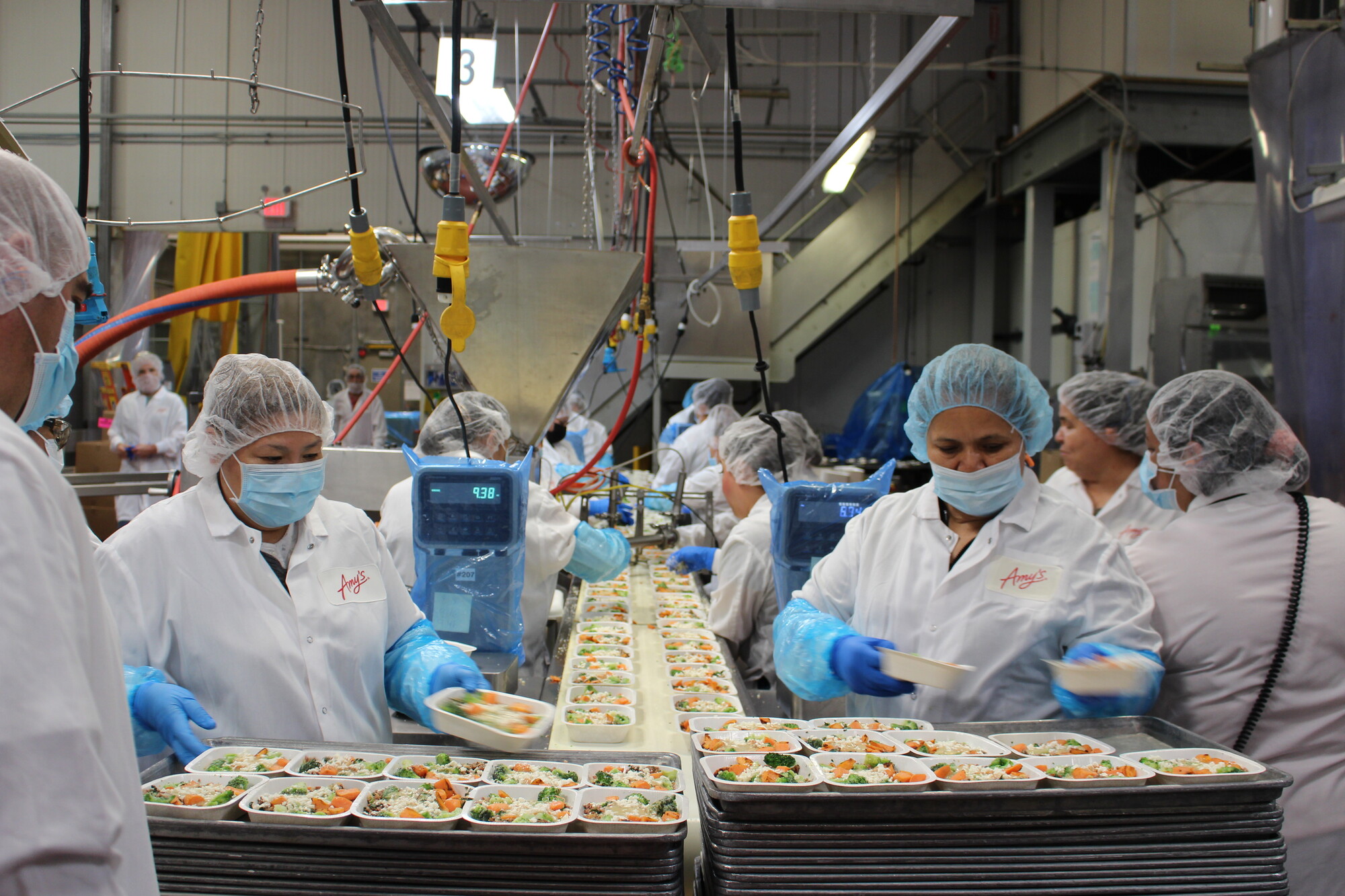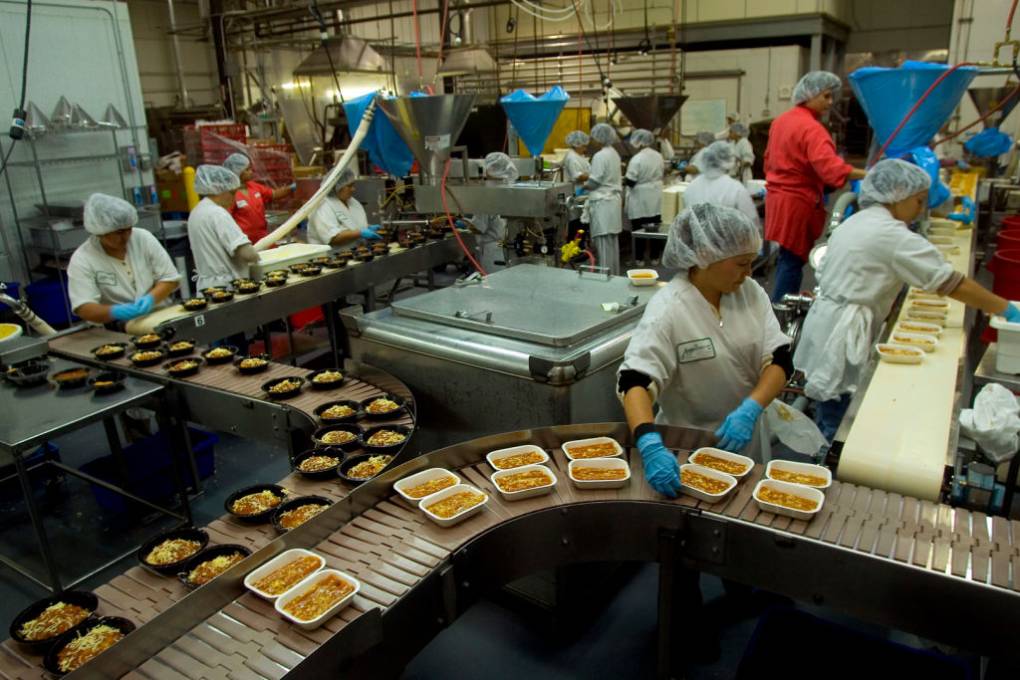The North Bay-based organic food company Amy’s Kitchen will lay off 311 employees — nearly 15% of its workforce — just months after the end of a two-year boycott over unsafe working conditions.
Employees at the company’s Petaluma headquarters, Santa Rosa plant and remote workers will be affected. Amy’s said in a statement that the decision was based on “industry headwinds” to “rebalance the business.”
“Yesterday’s decision was difficult and we are saddened to have to say goodbye to some of our valued team members,” the statement reads.



